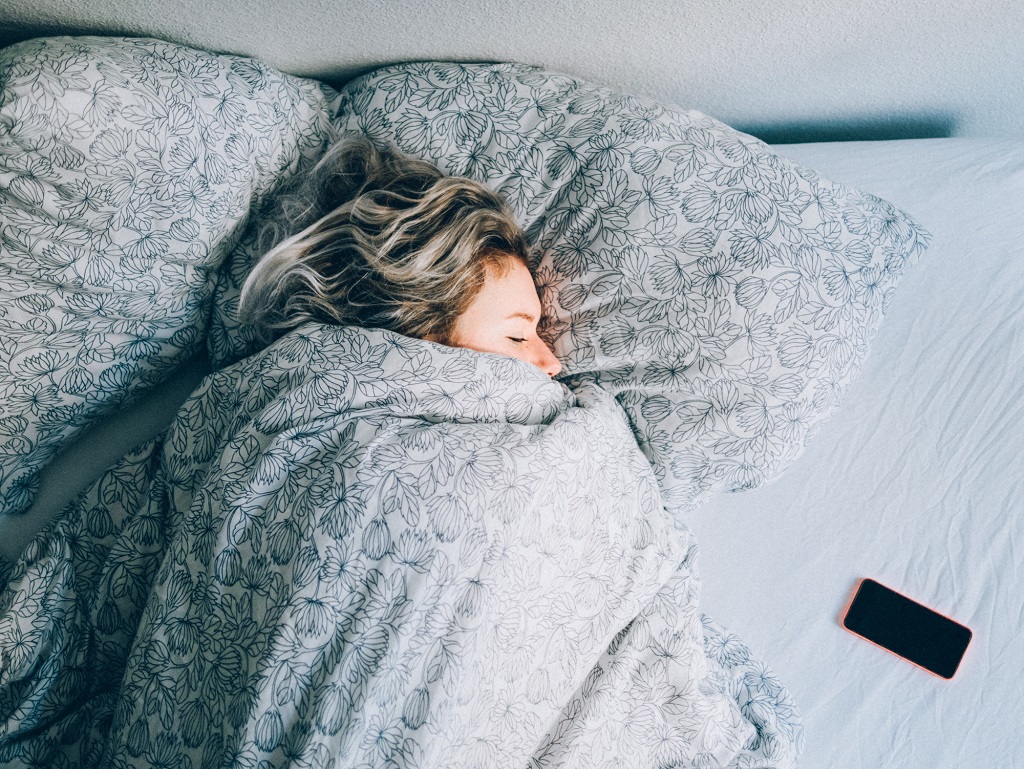We all know the feeling – that groggy fog after a restless night. Sleep isn’t just a luxury; it’s a biological necessity. During sleep, our bodies repair tissues, consolidate memories and regulate hormones crucial for physical and mental well-being. But in our fast-paced world, achieving a good night’s sleep can feel like a challenge.
This article delves into the science of sleep, exploring the secrets to unlocking a restful night and maximizing its benefits for your health.
The Symphony of Sleep: Understanding Sleep Stages
Sleep isn’t a uniform state. It’s a complex orchestra of stages, each with distinct physiological functions:
- Non-rapid eye movement (NREM) sleep: Comprises three stages with progressively deeper sleep. NREM sleep is essential for tissue repair, cell growth, and hormone regulation.
- Rapid eye movement (REM) sleep is characterized by rapid eye movements and increased brain activity. REM sleep is crucial for memory consolidation, learning, and emotional processing.
A healthy sleep cycle alternates between NREM and REM stages throughout the night. Most adults need 7-8 hours of sleep per night to allow for sufficient time in each stage.
The Sleep-Health Connection: Why Quality Sleep Matters
Chronic sleep deprivation can have a domino effect on our health. Here’s how:
- Physical Health: Inadequate sleep weakens the immune system, making us more susceptible to illness. It can also contribute to chronic health problems like heart disease, diabetes, and obesity.
- Mental Health: Sleep deprivation can worsen symptoms of anxiety and depression. Poor sleep can also impair cognitive function, making it harder to focus, concentrate, and learn.
- Safety: Drowsiness affects reaction time and judgment, increasing the risk of accidents and injuries.
Unlocking the Secrets: Building a Healthy Sleep Foundation
The good news is that we can all improve our sleep hygiene – the habits and practices that promote a good night’s rest. Here are some key strategies:
- Create a Consistent Sleep Schedule: Go to bed and wake up at the same time each day, even on weekends. This helps regulate your body’s natural sleep-wake cycle (circadian rhythm).
- Craft a Relaxing Bedtime Routine: Wind down before bed with calming activities like reading, taking a warm bath, or practicing relaxation techniques like deep breathing or meditation. Avoid screen time for at least an hour before sleep as the blue light emitted from electronic devices can suppress melatonin production, a hormone that regulates sleep.
- Optimize Your Sleep Environment: Ensure your bedroom is dark, quiet, cool, and clutter-free. Invest in blackout curtains, earplugs if necessary, and a comfortable mattress and pillows.
- Establish a Healthy Exercise Routine: Regular physical activity can improve sleep quality, but avoid strenuous workouts close to bedtime as they can be stimulating.
- Develop a Healthy Diet: Limit caffeine and alcohol intake, especially in the evening. Avoid heavy meals close to bedtime, but don’t go to bed hungry either.
- Manage Stress: Chronic stress can significantly disrupt sleep. Practice stress management techniques like yoga, meditation, or spending time in nature.

Beyond the Basics: Addressing Common Sleep Issues
While these strategies can improve sleep for many, some people face specific challenges. Here’s how to address some common sleep problems:
- Insomnia: If you struggle to fall asleep or stay asleep regularly, consult your doctor. Cognitive behavioral therapy for insomnia (CBT-I) can be an effective treatment option.
- Sleep Apnea: This condition causes brief pauses in breathing during sleep. Symptoms include snoring, daytime fatigue, and morning headaches. If you suspect sleep apnea, see a doctor for diagnosis and treatment.
- Restless Legs Syndrome: This neurological disorder causes an irresistible urge to move your legs, especially at night. Medications and lifestyle changes can help manage this condition.
The Power of Naps: Can Short Sleeps Be Beneficial?
While a good night’s sleep is essential, short daytime naps can also be beneficial. A 20-30 minute nap in the early afternoon can improve alertness, cognitive function, and mood. However, napping for too long or too late in the day can disrupt nighttime sleep.
Related: Sustainable Travel: Explore the World with a Lighter Footprint
Lighten Up and Sleep Well: Prioritizing Sleep for a Healthier You
Making sleep a priority is an investment in your overall health and well-being. By understanding the science of sleep and incorporating these strategies into your routine, you can unlock a night of restful sleep and wake up feeling refreshed and ready to take on the day. Remember, a good night’s sleep is not a luxury; it’s a necessity for a healthy and fulfilling life.





